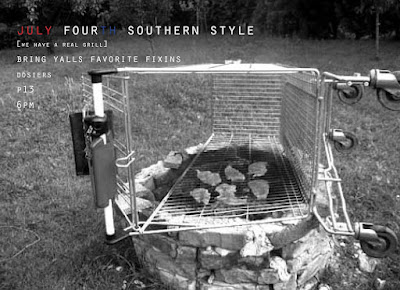One of the first Arabic words or phrases anyone learns over here is "inshallah". It means "God willing" or "if it is God's will". Everybody says it over here. What you may not realize if you're not living here - and if you haven't heard this word very much - is that there are two ways in which the word is used.
The first usage is the one that makes Western expats roll their eyes whenever they hear it. For instance, when a student says "I'll bring you that assignment this afternoon, inshallah", most Western professors interpret that statement as "I'll bring you that assignment this afternoon, as long as my friends don't call - and as long as there's nothing good on TV - and as long as I don't take a nap - and as long as nothing else comes up." So there's probably a 50-50 chance - at best - that the assignment actually gets turned in that afternoon.
This usage is common with adults, too. One of the (Western) department heads here at my university asked his (Middle Eastern) administrative assistant on a Thursday if she could get copies of an exam run for him by the following Monday. She replied, "Yes, inshallah." These two individuals have a pretty good working relationship so he responded with, "When you say inshallah, do you mean, 'Yes, I'll get it done' and you're just adding 'inshallah' because that's what you do culturally, or do you mean it the way students mean it? Because one of the reasons I'm giving you this five days early is because I definitely need it done by Monday. " Completely unflustered, she said, "It will be done by Monday, inshallah."
It's common to hear inshallah at government offices, when you call to get the cable TV turned on at your apartment, when you need a repair person, etc. And so most of the time, it doesn't create a real sense of optimism that things are going to get done in a timely manner.
So some people use "inshallah" casually, culturally, and as an excuse to not get things done. Maybe even the majority of people use it that way. But - as I said - there is another usage - one that is more than just using the word as an excuse.
Muslims use "inshallah" because they're required to do so by the Qur'an. Surah 18:23-24 says, "And never say of anything, 'I shall do such and such thing tomorrow,' except (with the saying): 'If God wills!' ." And so Muslims say "inshallah" any time they mention future plans.
As a Christian, I kind of like hearing "inshallah" in this sense because we (Christians) have the same instruction in the Bible. James 4:13-15 says, "Now listen, you who say, 'Today or tomorrow we will go to this or that city, spend a year there, carry on business and make money.' Why, you do not even know what will happen tomorrow. What is your life? You are a mist that appears for a little while and then vanishes. Instead, you ought to say, "If it is the Lord's will, we will live and do this or that."
Christians probably don't say "God willing" or "the Lord willing" nearly as often as the Muslims that I know over here, but it's still definitely something that I hear from time to time from Christians. It's always good to hear that someone is acknowledging God.
So when I hear "inshallah" on the lips of a sincere believer who is acknowledging God's control, I like it. It's a good reminder for me - and probably for other people as well - of God's role in the administration of the universe.





